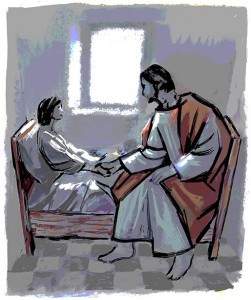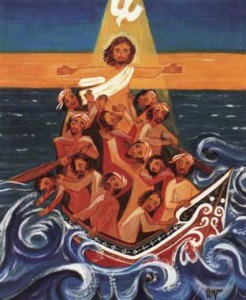Mark 10:46-52
This text is used for the Lectionary Year B on October 25, 2015.

This is the final pericope of a section of Mark that began in chapter eight with the healing of the blind man of Bethsaida (8:22-26). In between these two stories of the blind seeing is instruction on discipleship and all three of Jesus’ passion predictions. Also between these two vision stories are the disciples who time and again cannot see who Jesus is and what way they are walking as they journey with him, especially as they turn toward Jerusalem. As evidenced in the previous pericope, even as they draw close to Jerusalem and Jesus talks bluntly about his coming death, the disciples are still fighting about who will have the places of honor next to him.
We learn that the disciples and Jesus came to Jericho. It is speculated that they arrived in Jericho on Friday and spent the Sabbath day in the town. Now, it is Sunday morning, they are leaving Jericho for the approximately thirteen mile journey to Jerusalem. The next chapter opens later that day with the Triumphal Entry. As they leave the town that their ancestors had once surrounded with trumpets and shouts of faith, another voice trumpets out over the many who are following Jesus. “Son of David,” cries out the voice, “have mercy on me!” The voice will not be silenced.


